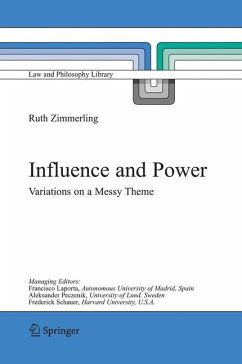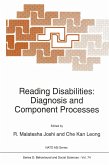Some years ago, on request of the German Political Science Association (DVPW), an empirical investigation "On the state and the orientation of political science in the Federal Republic of Germany" was conducted by Carl Böhret. Among other interesting 1 information, in the paper that was subsequently published the author presented the results of a survey among 254 political scientists in the Federal Republic on what they considered to be the sine qua non basic concepts of the discipline. In various respects, the data are remarkable. 2 On the one hand, the enormous diversity of the answers corroborates statistically what has long been known from experience, i. e. , the existence of an extremely wide variety of standpoints, perspectives, and approaches within the discipline. An interesting case in point is the concept of power. Somewhat surprisingly, 'power' was not the most frequently mentioned term. But, it did, of course, end up at the very top of the list, in third place behind 'conflict' and 'interest'. What is noteworthy is that it gained this position by being named only 81 times, that is, by less than a third of the respondents. This is no insignificant detail. Certainly, to that minority of scholars whose conceptions of politics do include 'power' as an indispensable basic concept, the approaches of the vast majority of their colleagues for whom, as their answers in the survey reveal, 'power' does not play an eminent role must appear, in an 3 important sense, mistaken or perhaps even incomprehensible.
"Exact but not exacting, this is a fine work of overview and analysis; it makes an excellent contribution to the literature on power and freedom." (Philip Pettit, William Nelson Cromwell Professor of Politics, Princeton University)
"In this work, the author assumes the task of a 'logical clean-up' - an extremely valuable contribution to the promotion of scientific rigour and clarity in political scholarship." [This book] "gives the reader orientation in a conceptual jungle." [It is] "an excellent analysis of the relationships between normative and social power." (Ernesto Garzón Valdés, Prof. em. of Legal Philosophy, President of The Tampere Club)
"A genuinely pioneering contribution insofar as the author - to my knowledge: for the first time ever - succeeds in giving a conceptually rather clear profile to a descriptive-analytic and normative understanding of the phenomenon of influence and in elucidating - again, by way of thorough and profound analysis - thatthis is much more than an academic glass-bead game, because our understanding of such essential normative foundations of political theory as freedom and equality is inextricably linked to the concepts of power and influence, and because this is the only way how we can come to see the fundamental obstacles to a coherent interpretation and institutional realization of the idea of the democratic Rechtsstaat." (Rainer Schmalz-Bruns, Prof. of Political Theory, Darmstadt University of Technology)
"In this work, the author assumes the task of a 'logical clean-up' - an extremely valuable contribution to the promotion of scientific rigour and clarity in political scholarship." [This book] "gives the reader orientation in a conceptual jungle." [It is] "an excellent analysis of the relationships between normative and social power." (Ernesto Garzón Valdés, Prof. em. of Legal Philosophy, President of The Tampere Club)
"A genuinely pioneering contribution insofar as the author - to my knowledge: for the first time ever - succeeds in giving a conceptually rather clear profile to a descriptive-analytic and normative understanding of the phenomenon of influence and in elucidating - again, by way of thorough and profound analysis - thatthis is much more than an academic glass-bead game, because our understanding of such essential normative foundations of political theory as freedom and equality is inextricably linked to the concepts of power and influence, and because this is the only way how we can come to see the fundamental obstacles to a coherent interpretation and institutional realization of the idea of the democratic Rechtsstaat." (Rainer Schmalz-Bruns, Prof. of Political Theory, Darmstadt University of Technology)








